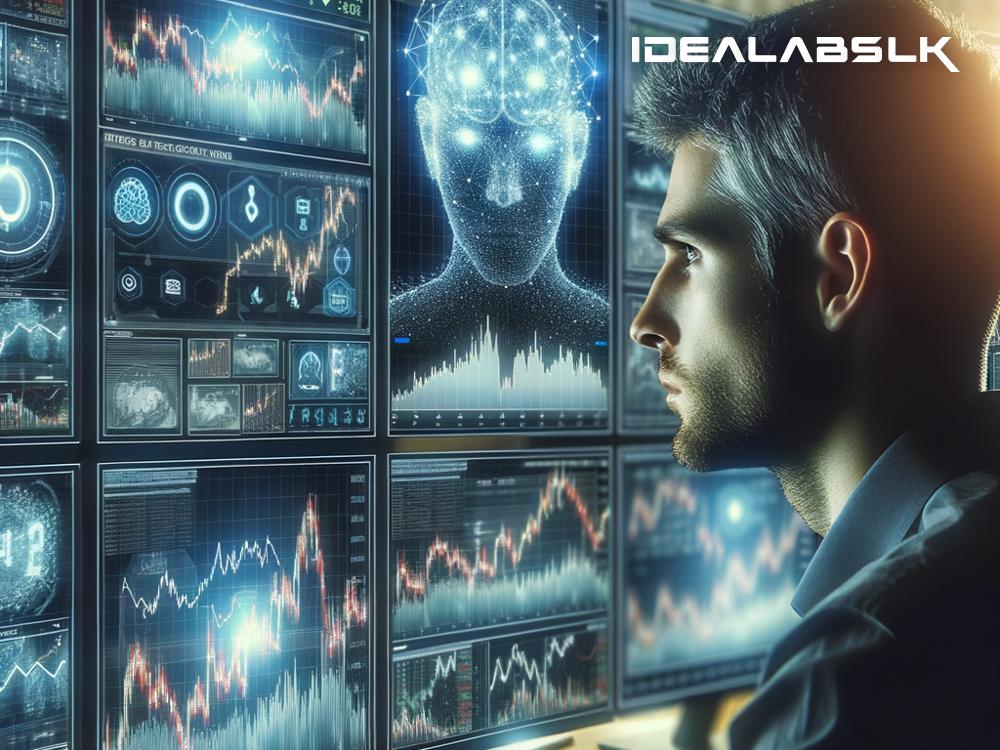AI for Trading: Making Smarter Decisions with Machine Learning
Imagine you're a trader in the bustling, fast-paced world of the stock market. The environment is high stakes and high stress. You need to make quick, accurate decisions based on a vast amount of information. It sounds overwhelming, doesn't it? This is where Artificial Intelligence (AI) and Machine Learning (ML) come into play, transforming the way trades are made and helping traders to make smarter, more informed decisions.
Understanding AI and Machine Learning
Before we dive into how AI and ML are revolutionizing trading, let's quickly understand what these terms mean. AI is a broad area of computer science focused on creating smart machines capable of performing tasks that typically require human intelligence. Machine Learning, a subset of AI, involves the development of algorithms that can learn and improve from experience without being explicitly programmed.
How AI and Machine Learning are Changing the Game
Now, let's explore how these technologies are changing the landscape of trading.
1. Data Analysis at Superhuman Speed
One of the most significant advantages of using AI in trading is its ability to analyze vast amounts of data at speeds no human can match. Every day, the financial markets generate an enormous amount of data, including price movements, economic reports, and news articles. AI systems can sift through this data, identify trends, and make predictions much faster than any human analyst could.
2. Predictive Analytics
Machine Learning algorithms can predict future market movements based on historical data. By analyzing patterns in past market behavior, these algorithms can identify potential future trends and trading opportunities. This predictive capability helps traders to make more informed decisions about where to allocate their resources.
3. Automated Trading Systems
Another exciting application of AI in trading is the development of automated trading systems. These systems use algorithms to make trades automatically based on predefined criteria. Because these systems can operate around the clock without getting tired, they can take advantage of trading opportunities that human traders might miss overnight or during periods of high volatility.
4. Risk Management
AI and ML can also play a crucial role in managing risk. By analyzing historical data and current market conditions, these systems can help traders understand the potential risks associated with different trading strategies. This understanding allows traders to make more informed decisions about how much risk to take on, helping to minimize potential losses.
5. Eliminating Emotional Decision-Making
One of the biggest challenges traders face is managing their emotions. Fear and greed can lead to poor decision-making and significant losses. Automated trading systems, powered by AI, eliminate this issue by sticking strictly to the data and predefined rules, thus removing human emotion from the equation.
The Challenges and Concerns
Despite the numerous benefits, there are challenges and concerns associated with the use of AI in trading. One of the main issues is the potential for over-reliance on these systems. If traders become too dependent on AI, they might lose the ability to analyze the markets and make decisions independently. There's also the risk that AI systems could make errors or that malicious actors could manipulate them, leading to significant market disruptions.
Moreover, there's a debate about the fairness of using AI in trading, as those with access to more advanced systems may have an unfair advantage over other market participants.
The Future of AI in Trading
Despite these challenges, the use of AI and ML in trading is expected to grow. As these technologies continue to evolve, they will become even more sophisticated, offering greater insights and making even more accurate predictions. This ongoing advancement could level the playing field, as more traders gain access to powerful AI tools, democratizing the use of AI in trading.
Conclusion
AI and Machine Learning are transforming the trading landscape, offering tools that help traders analyze data more quickly, make more accurate predictions, manage risks better, and remove emotional biases from their decision-making processes. While there are challenges and concerns, the potential benefits of these technologies are immense, paving the way for more efficient, fair, and profitable trading experiences. As we look to the future, it's clear that AI and ML will continue to play a pivotal role in shaping the world of trading.
In this rapidly evolving field, staying informed and adapting to new technologies will be key for traders looking to maintain a competitive edge.

